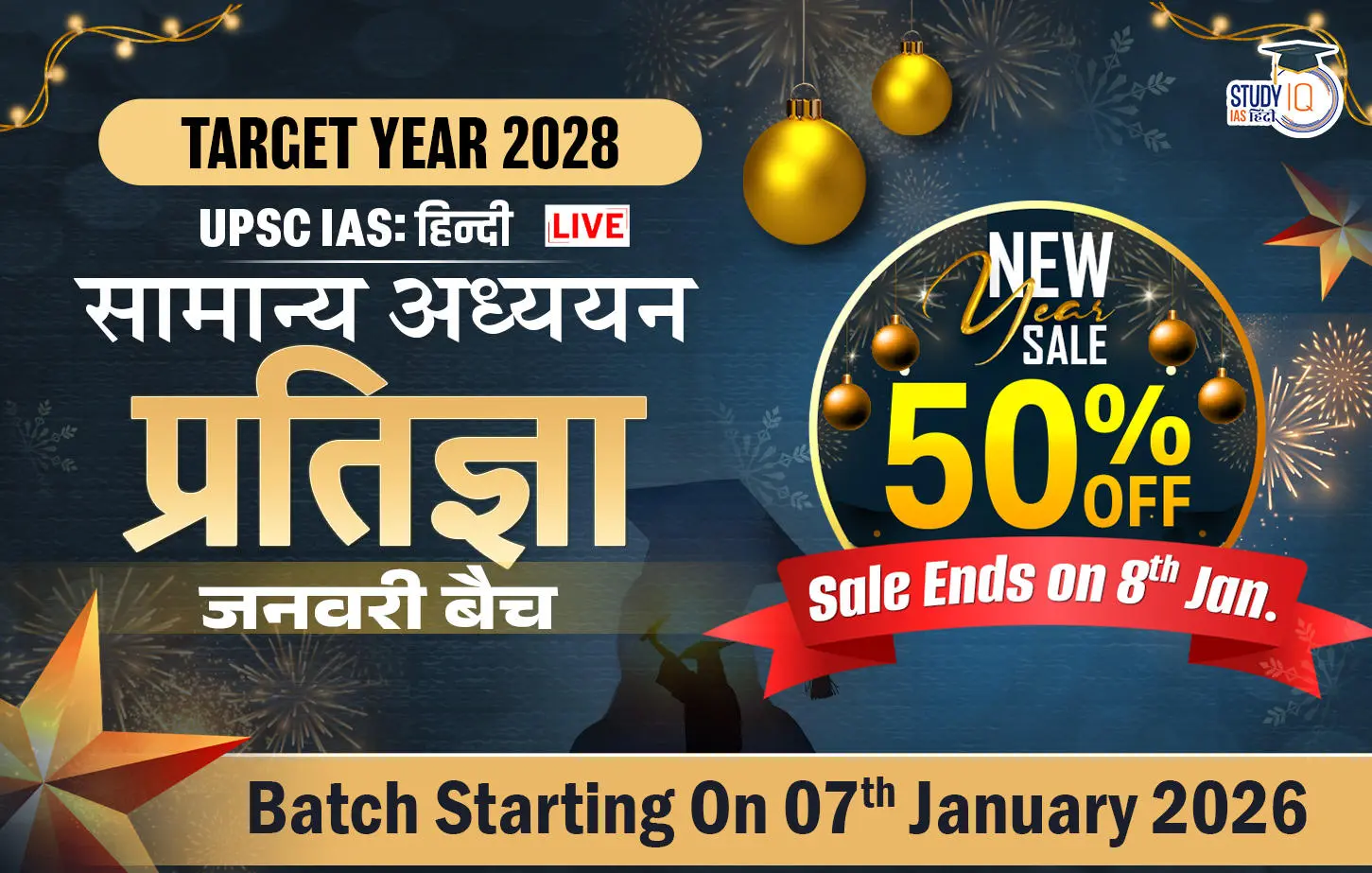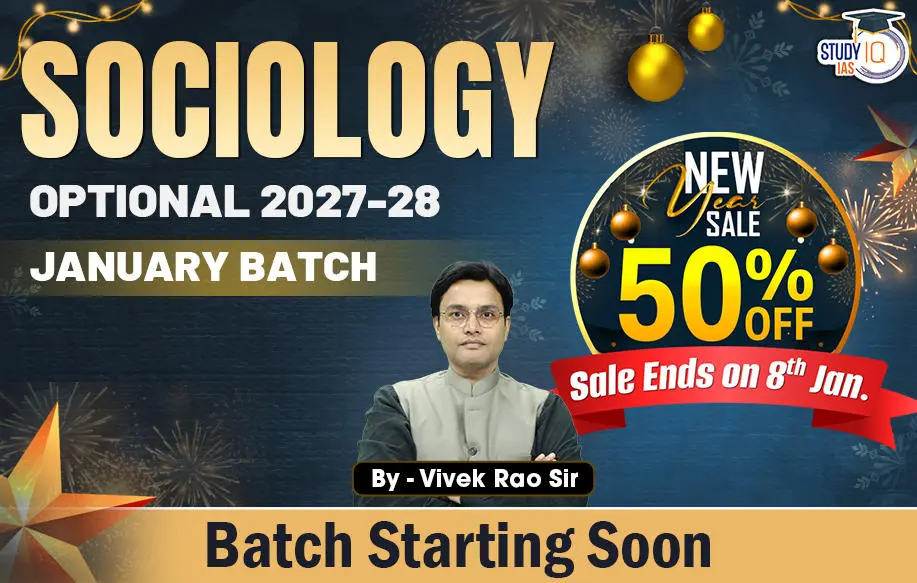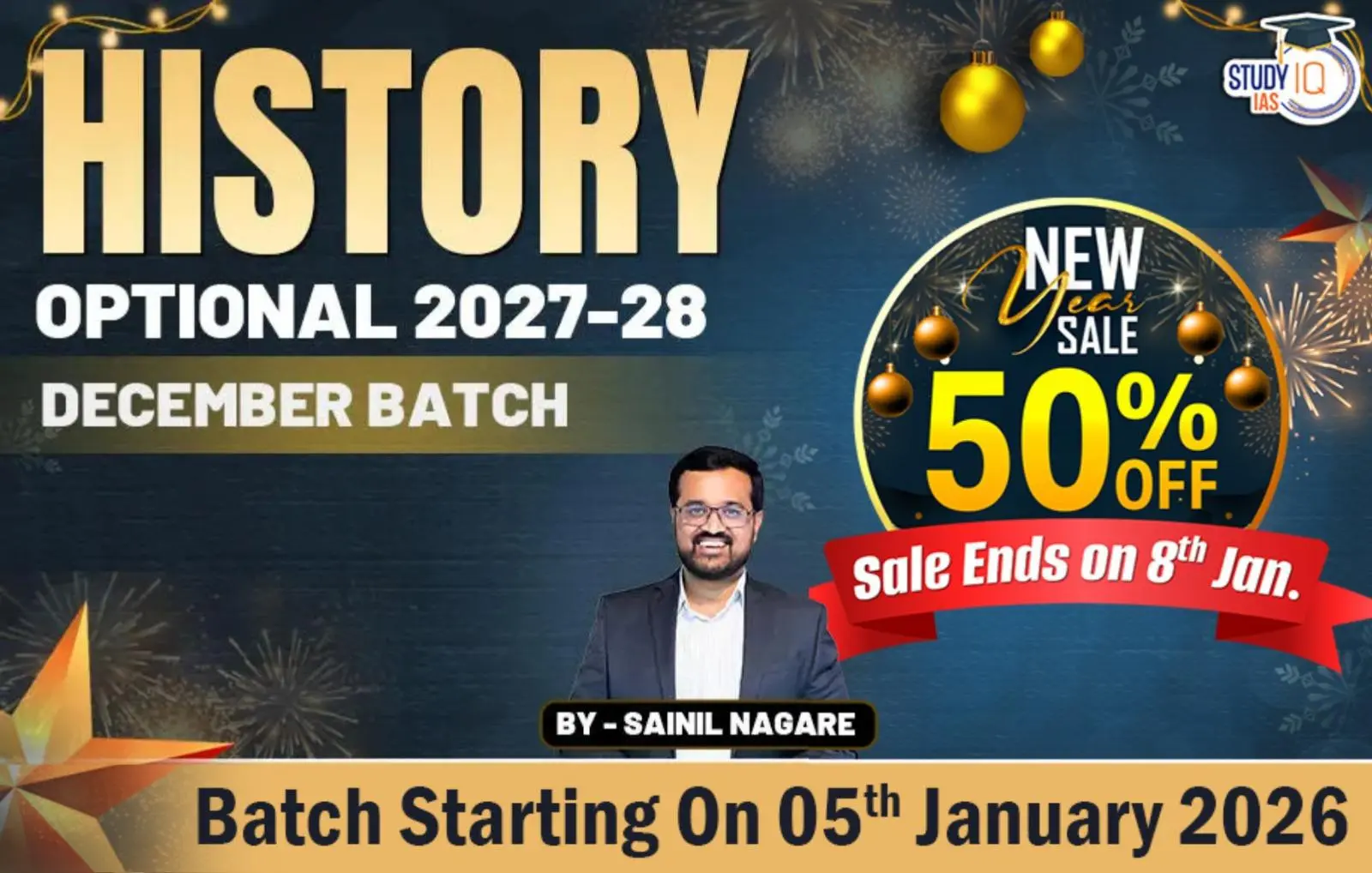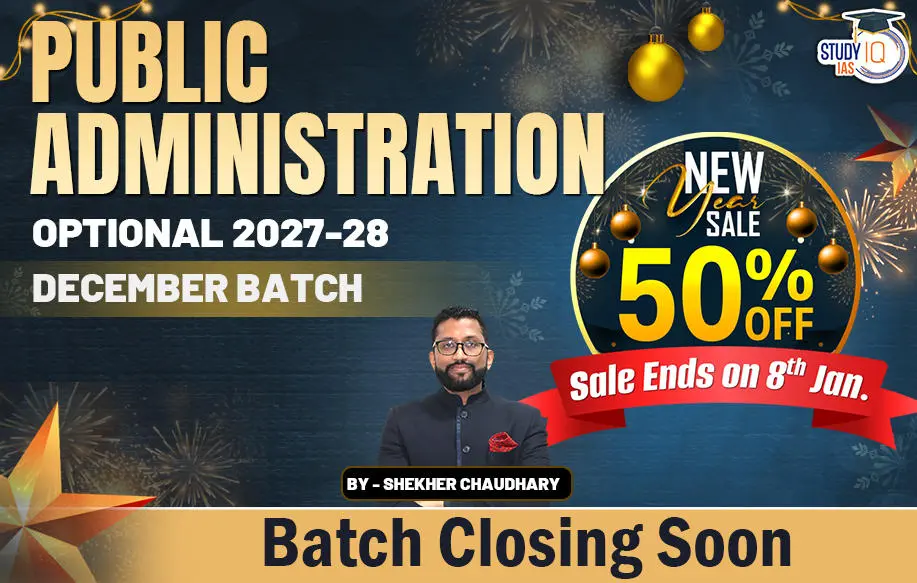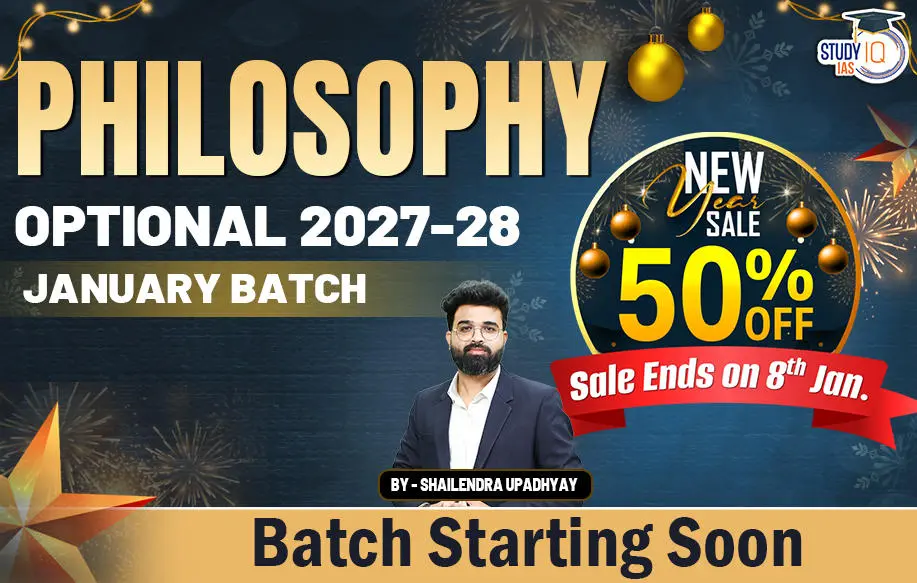The Indian freedom struggle is marked by the valiant contributions of women who played significant roles in India’s independence. Defying traditional expectations, these women emerged as leaders, fighters, strategists, and organizers, inspiring millions with their courage and dedication. Their contribution was not limited to any one region or social class, showcasing the unity and diversity that defined the Indian independence movement.
This article lists and highlights the names, roles, and contributions of some of the most prominent women freedom fighters, providing valuable insights for UPSC aspirants on their impact on India’s path to independence.
Women Freedom Fighters of India
Women freedom fighters in India made significant contributions to the country’s independence movement against British rule. Despite facing societal constraints and discrimination, these women challenged the patriarchal norms and joined the freedom struggle, inspiring future generations with their bravery and determination.
Women Freedom Fighters Role in Freedom Struggle
The role of women freedom fighters in India’s independence movement was multifaceted, spanning from leading revolts and organizing protests to supporting social reforms and mobilizing communities. Women across India played a vital role in the freedom struggle, contributing their courage, intellect, and resilience to the cause of independence. Here is an overview of their key roles:
- Leaders in Armed Resistance:
- Rani Lakshmibai: Led the 1857 revolt in Jhansi against British forces.
- Begum Hazrat Mahal: Defended Awadh in 1857, symbolizing resistance.
- Lakshmi Sahgal: Commanded the INA’s Rani of Jhansi Regiment under Subhas Chandra Bose.
- Organizers of Protests and Civil Disobedience:
- Sarojini Naidu: Key leader in Civil Disobedience and Non-Cooperation Movements.
- Aruna Asaf Ali: Led the Quit India Movement, famously hoisting the flag at Gowalia Tank Maidan.
- Advocates for Social Reform and Grassroots Mobilization:
- Kasturba Gandhi: Supported Mahatma Gandhi’s social reform efforts and led women in the Salt March.
- Kamala Nehru: Organized protests and boycotts, empowering women to join the movement.
- Revolutionary Activities and Underground Networks:
- Usha Mehta: Ran Congress Radio, broadcasting patriotic messages during Quit India.
- Kalpana Dutt & Pritilata Waddedar: Engaged in revolutionary raids against British targets in Bengal.
- International Advocacy:
- Bhikaji Cama: Promoted India’s independence abroad and unfurled the Indian flag internationally.
- Vijaya Lakshmi Pandit: Represented India on global platforms, advocating against colonialism.
- Pioneers of Women’s Political Participation:
- Sucheta Kriplani: Leader in Quit India; later became India’s first woman Chief Minister.
Top 15 Women Freedom Fighters of India
This article covers the following 15 women freedom fighters of India with their names, lists, roles and contributions to the country:
- Rani Lakshmi bai
- Begum Hazrat Mahal
- Kasturba Gandhi
- Kamla Nehru
- Vijay Laxmi Pandit
- Sarojini Naidu
- Aruna Asaf Ali
- Madam Bhikaji Cama
- Kamla Chattopadhyay
- Sucheta Kriplani
- Annie Besant
- Kittur Chennamma
- Savitribai Phule
- Usha Mehta
- Lakshmi Sahgal
Read about: Viceroy of India
List of Female Freedom Fighters and their Contribution
India has a rich history of women who have played a significant role in the country’s freedom struggle. Here are some of the most prominent women freedom fighters in India:
| Women Freedom Fighter |
Contribution |
| Rani Lakshmibai |
- Rani Lakshmibai was the Queen of Jhansi and is remembered as one of the most important leaders of the Indian Rebellion of 1857.
- She revolted against British rule in response to the annexation of the Kingdom of Jhansi by the British East India Company. The annexation was part of a larger policy by the British to expand their control over India.
|
| Begum Hazrat Mahal |
- She leads the revolt against the British East India Company during the 1857 uprising in Awadh. She served as a symbol of resistance for Muslim women in India and also played a critical role in the development of the independence movement in India.
|
| Zeenat Mahal |
- She played a crucial role in supporting her husband, Bahadur Shah Zafar II, in the 1857 uprising against the British East India Company.
- She supported the independence movement through her political and diplomatic efforts.
- She remained an influential figure in the Indian independence movement despite being exiled to Rangoon (now Yangon) by the British.
|
| Jhalkaribai |
- She was a key military leader in the 1857 uprising against the British East India Company. She worked closely with Rani Lakshmibai in the defense of Jhansi.
|
| Annie Besant |
- She was a prominent British socialist and supporter of Indian independence and played a key role in the Theosophical Society, which aimed to promote the study of comparative religion, philosophy, and science, and to encourage the investigation of the mysteries of life and nature.
- She founded the Home Rule League, which aimed to promote self-government in India.
|
| Sarojini Naidu |
- Sarojini Naidu was a prominent leader of the Indian independence movement and a close associate of Mahatma Gandhi.
- She was known for her speeches and poems and was one of the few women who played a prominent role in India’s independence movement. She was also an advocate for women’s rights and was instrumental in the formation of the Women’s Indian Association.
- Sarojini Naidu was the first woman to become the President of the Indian National Congress and was also appointed as the Governor of the United Provinces (present-day Uttar Pradesh) after India gained independence.
|
| Aruna Asaf Ali |
- She was a leading political activist and independence leader in India and played a key role in the Quit India Movement, which aimed to pressure the British government to grant independence to India.
- She served as the mayor of Delhi and was a prominent figure in the Indian National Congress.
|
| Kalpana Dutta |
- Participated in the Non-Cooperation Movement and was arrested for picketing and burning foreign clothes.
- Helped organize the Bengal Volunteers Corps and was one of the leading female members of the Indian National Congress.
- Contributed to the women’s rights movement in India and worked towards women’s education and empowerment.
|
| Sucheta Kriplani |
- Became the first woman to be elected as the Chief Minister of an Indian state (Uttar Pradesh).
- Active participant in the freedom movement participated in the Salt Satyagraha and was arrested several times.
- Worked towards uplifting the status of women in India and was a strong advocate of women’s rights and education.
|
| Rani Gaidinliu |
- Led a revolt against British rule in India at the age of 13.
- Her efforts inspired the tribal communities of northeast India to join the independence movement.
- Imprisoned by the British for her activism and is remembered as a symbol of resistance against colonial rule in India.
|
| Kanaklata Barua |
- Became a martyr at the young age of 17 while hoisting the national flag during the Quit India Movement.
- Her bravery inspired many others to join the independence movement and her memory is still celebrated in India.
- Represented the spirit of young India and their willingness to sacrifice for the cause of freedom.
|
| Usha Mehta |
- Active participant in the Quit India Movement and played a key role in the secret broadcasting of Congress radio.
- Became one of the youngest political prisoners and was arrested several times during the freedom struggle.
- Worked towards the upliftment of women and their education and was a strong advocate of women’s rights.
|
| Vijaya Lakshmi Pandit |
- Became the first woman to hold a cabinet post in India and was appointed as the Minister of Local Self-Government and Health.
- Acted as the Indian ambassador to several countries and was the first woman to become the President of the United Nations General Assembly.
- Worked towards women’s rights and education and was a strong voice in the Indian independence movement.
|
| Purnima Banerjee |
- Actively participated in the freedom struggle and was arrested several times.
- Helped establish the All India Women’s Conference and worked towards women’s rights and education.
- Contributed to the upliftment of tribal communities and advocated for their rights and empowerment.
|
| Ammu Swaminathan |
- Actively participated in the Salt Satyagraha and was arrested several times during the independence struggle.
- Worked towards women’s rights and education and was a strong advocate for gender equality.
- She was also a member of the Constituent Assembly of India formed after independence.
|
| Leela Roy |
- Became a prominent leader of the Non-Cooperation Movement and was arrested several times during the independence struggle.
- She worked relentlessly towards the empowerment of women throughout her life
- Contributed to the development of rural communities and was a leader in the Indian National Congress.
|
| Hansa Mehta |
- Became the first woman to be elected as the President of the All India Women’s Conference.
- Actively participated in the independence struggle and was arrested several times.
- Worked towards women’s rights and education and was a strong advocate for gender equality.
|
In conclusion, women played a crucial role in India’s independence movement and their contributions should not be overlooked. Despite facing numerous challenges such as violence, imprisonment, and social stigma, these women stood up for their rights and freedoms, inspiring future generations to fight for their rights. These women represent the bravery, resilience, and determination that was essential to India’s fight for independence. Today, their legacy continues to inspire and their contributions are an important part of India’s rich history.
Read More: British Administration System
Women Freedom Fighters of India UPSC
Indian women played a pivotal role in the Indian freedom movement against British rule. They participated in various forms of protest including civil disobedience, non-violent resistance, and boycotts. Women from diverse backgrounds including royalty, aristocracy, and commoners joined the movement, breaking social norms and defying the colonial authorities.
Despite facing numerous challenges such as violence, imprisonment, and social stigma, these women stood up for their rights and freedoms, inspiring future generations to fight for their rights. Some of the notable women freedom fighters of India include Rani Lakshmibai, Sarojini Naidu, Aruna Asaf Ali, and Kalpana Dutta. The contribution of these women to India’s independence movement continues to be remembered and celebrated today.
Sharing is caring!

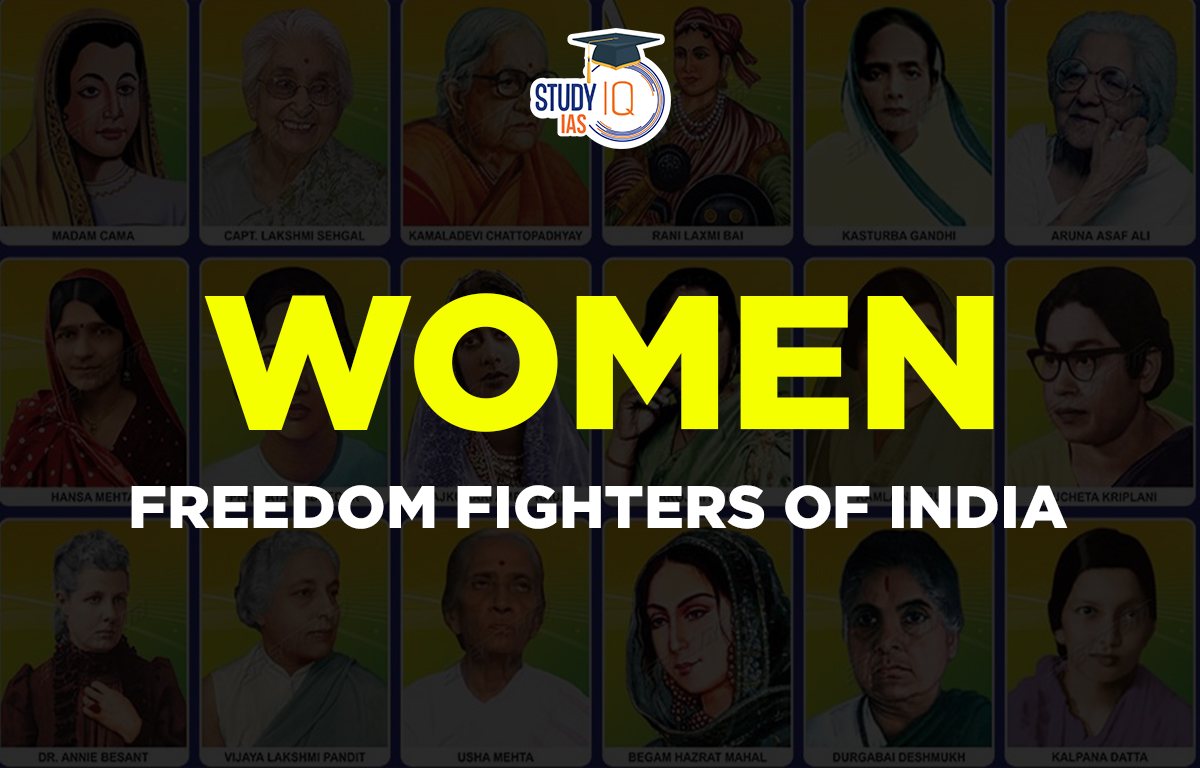
 Birsa Munda Birth Anniversary 2025: Life...
Birsa Munda Birth Anniversary 2025: Life...
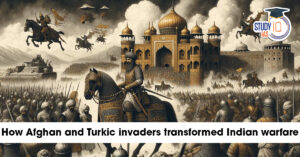 Military Innovations of Afghans and Turk...
Military Innovations of Afghans and Turk...
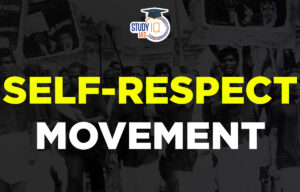 Self-Respect Movement, History, Objectiv...
Self-Respect Movement, History, Objectiv...


